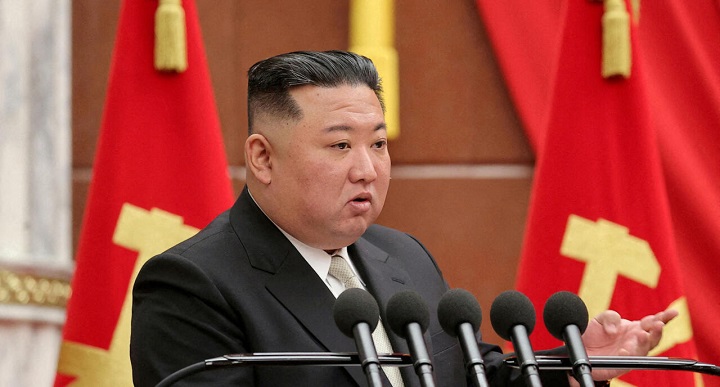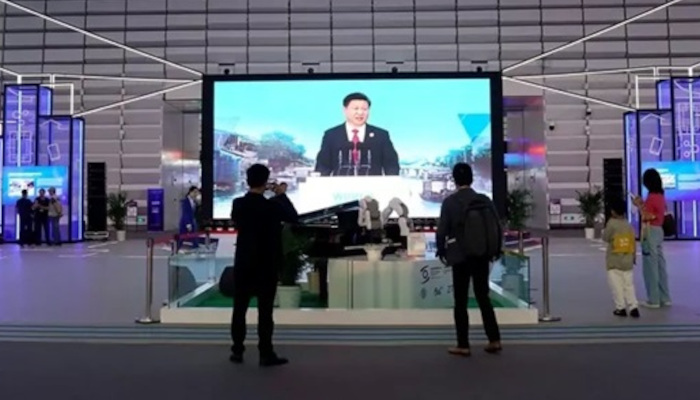
Is peace in Ukraine possible soon? The American elections are pivotal, of course. If Donald Trump wins, he has said he’ll achieve peace quickly. However, even if Kamala Harris is elected (as recent polls suggest is more likely), Russian President Vladimir Putin may seek a compromise, facing the prospect of four more years of fighting against the US-backed Kyiv.
Ukraine is in a difficult position. It has scored a publicity victory by attacking and holding an area in the region of Kursk within Russia, but it is retreating on the long eastern front around Pokrovsk. The Russian advance has been slow and costly, with an estimated 1,200 casualties per day, on top of the over 500,000 losses it has suffered so far. However, Ukraine has a fifth of the Russian population and is also feeling the strain. Although Russia may not achieve a breakthrough, Ukrainian President Volodymyr Zelensky’s diplomatic activism shows his country’s suffering is real. Allies are skeptical of a Ukrainian plan to start a long-range missile campaign deep within Russia, fearing it could lead to uncontrollable escalation.
Russia is in a tough position as well. Its war effort increasingly relies on Chinese and Iranian support. This dependence is evident in the sale of Russian gas and oil to China at prices constantly below market value, indicating that Russia relies on China’s support and doesn’t have much room for negotiation. The longer the war continues, the more Russia finds itself reliant on China, a situation eerily reminiscent of when Russia was under the yoke of the Mongolian Golden Horde.
Moreover, sustained Israeli pressure on Iran’s allies could weaken Tehran’s support for Moscow and impact its war capabilities (see https://www.appiainstitute.org/articles/middle-east/a-lebanese-operation-for-ukraine/ ).
If Ukraine remains resilient, Russia might give in, as it did a century ago, in 1917, when Russian troops stopped fighting against the Germans, leading to the Bolshevik takeover. Yet, nobody in the West wants the collapse of Russia, as it could leave a massive political vacuum across Eurasia and thousands of nuclear missiles uncontrolled.
All alternatives present bad choices. Thus, an early compromise could help stabilize the situation and provide a temporary solution, awaiting further developments. Peace talks could also help address issues in the EU, where disruptive pro-Russia political forces are rising.
However, this won’t be the end of the story. Tensions are easing around China, but there is no dramatic improvement.
It’s unclear what will happen to Russia after a ceasefire—whether Putin will retain his position or be held accountable for leading the country into a senseless conflict.
Prudent analysts prefer Putin to remain in power, as they know him but may not know his successor. Paradoxically, if Russia holds its occupied Ukrainian territories, it would face a daunting (and massively expensive) reconstruction task. Returning part of those territories might be cheaper and easier, leaving their reconstruction to Kyiv, although it could be politically sensitive. Again, there are no good choices.
A cessation of fighting in Ukraine could impact Iran too. Facing a West more focused on supporting Israel after peace with Russia, Tehran might want to curb its attacks and pressure Hamas to release hostages and leave the Gaza Strip. Israel has forced Hamas underground for a year, and in a few weeks, it has significantly weakened Hezbollah in Lebanon. Without the distraction of the Ukrainian war, Israel could push Iran even further back.
Overall, the end of the war will start a more complicated political game involving Russia, China, and Iran. Unlike the first Cold War, this grouping lacks a clear leader and presents overlapping but not fully aligned agendas. Additionally, the wild card of North Korea could become more prominent without one or two raging wars in the West.
The global South is undecided, with mixed feelings and opinions about the two wars that do not fully align. This region is becoming and will increasingly be the battleground for each side’s propaganda wars.
The 1953 truce in the Korean War opened a period of relative stability, where the two blocs maintained their positions and mainly nibbled at each other’s edges. Now, a truce in Ukraine could lead to massive shifts, political maneuvers, and high volatility that could erupt into new, unexpected conflicts. China could return to the frontline of undivided global political attention, something Beijing may not desire, but still might be better than fighting two losing wars. Beijing holds its cards very close to its chest, and yet its clout over Moscow, Tehran, or even Pyongyang is not as decisive as it was Moscow’s clout on its satellites during the first Cold War.
Still, everybody may need time to regroup and rethink. The future is very uncertain.









